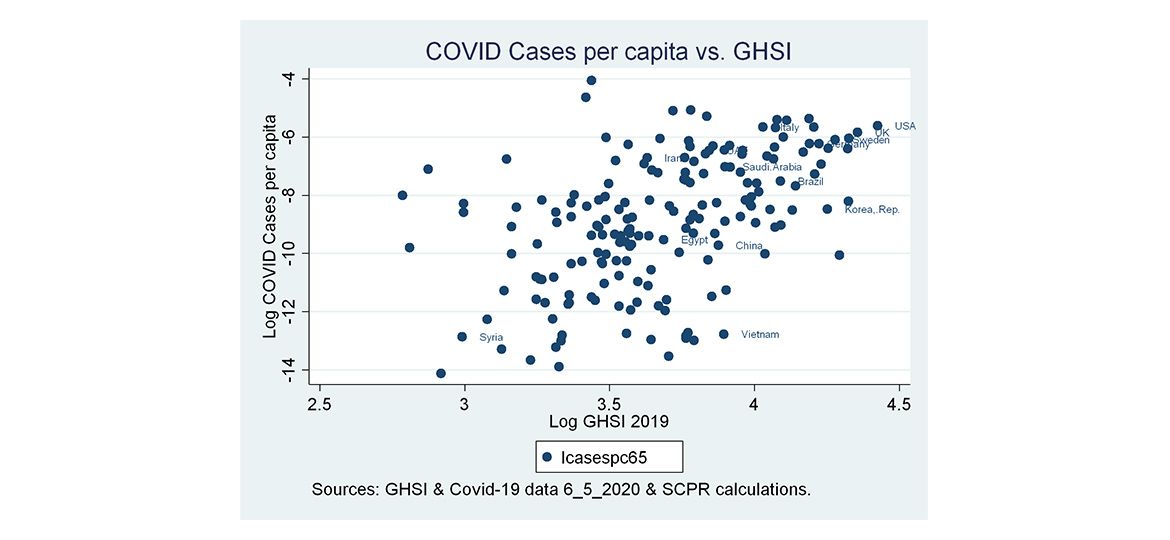The widespread and exponential growth of Covid-19 in “advanced” countries compared to “developing” counties contradicts the conventional literature on social determinants of health (henceforth, SHD) such as income, life expectancy, health system, governance among others. This article quantitively explores the association between cases and deaths of COVID-19 and SHD; using available country-level data of the pandemic until 6 May 2020. It highlights two different narratives to explain the breakout of the pandemic in the “advanced” counties: The first one assumes major shortcomings in the conventional analytical framework that led to a failure of capturing key determinants of health; while the second one assumes, that the SHD framework is still valid, thus it is a matter of time to witness the second wave of COVID-19 that will hit mainly the “developing” countries.
While the pandemic caused by the SARS-COV-2 has united the world in common concern it has also exposed fault lines between rich and poor countries and magnified the inequalities in the world system and structures of global power. The severity of the crisis is not only an urgent call for immediate steps to help mitigate the economic fallout in developing countries, but should also open a space to think of radical questions about the global economic model and the limits of ‘liberal democracy’ beyond and perhaps in opposition to predominate forms of international exchange measured in capital[1]. The two main…


